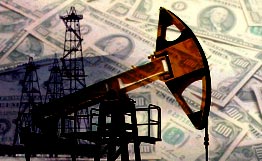 University of Houston finance professor Craig Pirrong (blog here) does a nice job in this Wall $treet Journal op-ed on Friday of explaining how speculation in oil and gas markets helps all of us deal with rising energy prices:
University of Houston finance professor Craig Pirrong (blog here) does a nice job in this Wall $treet Journal op-ed on Friday of explaining how speculation in oil and gas markets helps all of us deal with rising energy prices:
Restricting these speculators won’t reduce the price of oil — but they are likely to make consumers and investors worse off. Futures and swap markets facilitate the efficient management of price risks, and speculators are an important part of that process.
For instance, a producer of oil may want to lock in the price at which he sells his oil in the coming months in order to hedge against fluctuations in its price. He can do so by selling a futures contract at the prevailing market price. Similarly, an airline can protect itself against price increases next summer by buying today a futures contract that locks in a purchase price for next July.
Producers and consumers who want to “hedge” in this fashion cannot wave a magic wand to make the price risks they face disappear. The oil producer has to find somebody to sell to, and the airline must find somebody to buy from — and that somebody is often a speculator. Restricting speculation would increase the costs that producers, consumers (such as airlines), and marketers (such as heating-oil dealers) pay to manage their price risks by reducing the number of traders able to absorb the risks they want to shed.
These higher risk management costs would result in higher prices at the pump or the airline ticket counter for consumers, and less investment in new productive capacity — which would keep prices high into the future.Participation in these oil markets by pension funds and other investors . . . is also not a problem.
By adding commodity futures to their portfolios, i.e., by diversifying, these investors can reduce their risks without sacrificing returns, and without impacting physical inventories (or prices). Consumers are the ultimate winners when risks are borne as efficiently as possible in these markets.
The unprecedented run-up in oil prices is painful for consumers around the world. But the focus on speculation is misguided, and represents a convenient distraction from an understanding of the real, underlying causes of high oil prices — most notably continuing demand growth in the face of stagnant production, supply disruptions and the weakening dollar.More restrictions and regulations of energy markets, in the vain belief that such actions will bring price relief, are counterproductive. They will make the energy markets less efficient, rather than more so.
One really need look no further than the most profitable U.S. airline — Southwest — to understand how robust speculation in energy markets benefits a company’s employees, its investors and its customers.
However, apparently the CEO of a far less profitable airline — Craig Steenland of chronically unprofitable Northwest Airlines — has not noticed how beneficial futures markets can be for his company and its customers. He is busy lobbying Congress to enact strict regulations against precisely the type of markets that Southwest Airlines has used to beat Northwest’s performance like a drum over the past five years:
The battered airline industry took its concerns about rising fuel costs to Capitol Hill Monday, urging Congress to address widespread speculation in the energy markets.Making the case for the industry was Northwest Airlines CEO Doug Steenland, who argued that energy market speculators have pushed oil prices to unprecedented levels and harmed the airlines that saw some recovery in 2007.
[. . .]”I cannot overstate the importance to my company and the entire U.S. airline industry of immediate congressional action to halt excessive speculation in oil futures markets,” Steenland said.
Specifically, Steenland sought more regulatory power for the Commodity Futures Trading Commission (CFTC), a prohibition on pension funds from investing in energy commodities and law changes that would remove loopholes and increase oversight of speculators.
Jeff Matthews sums up the absurdity of Steenland’s witch hunt on the energy speculators perfectly:
Remember what I said about Mr. Steenland being named CEO of Northwest in October, 2004?
Northwest Airlines did not start hedging its jet fuel needs until 2008.
That’s right.
Unlike, say, Southwest, which hedged most of its jet fuel needs when prices were low, Northwest didn’t bother until oil had spiked to $100 a barrel. [. . .]
Of course, when a big corporate CEO like Mr. Steenland makes a gross error of judgment like not hedging his single biggest cost of doing business, he naturally takes full responsibility and ask shareholders and customers for forgiveness.
We’re kidding!
He blames speculators instead . . .
Northwest emerged from Chapter 11 in May 2007. Northwest equity holders got nothing. Mr. Steenland got a package worth $26.6 million at the time.
Too bad Northwest didn’t use some of that $26.6 million to hedge itself.
I guess the only thing to do now that it’s too late to do anything useful is…blame speculators.
Yep, that’s the ticket…for an airline that doesn’t know much about hedging, anyway.
I rest my case.
